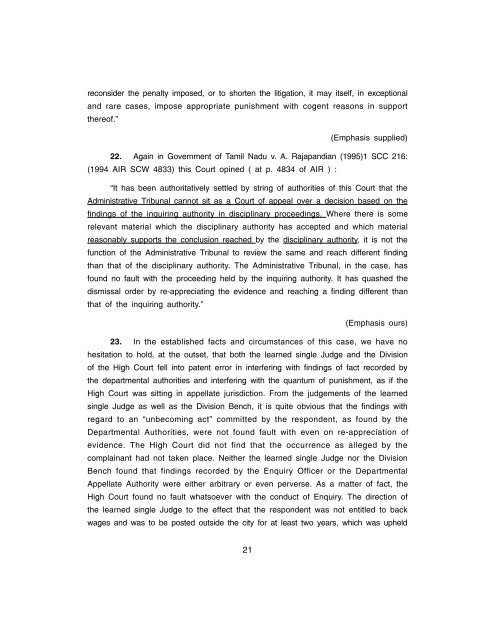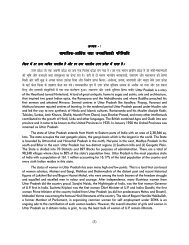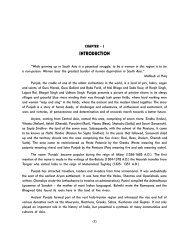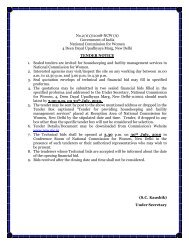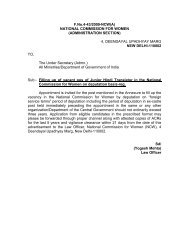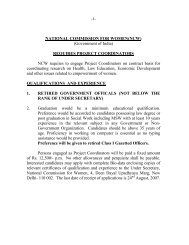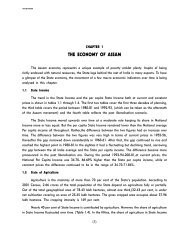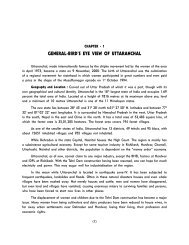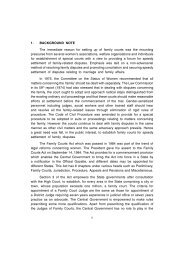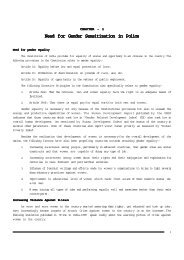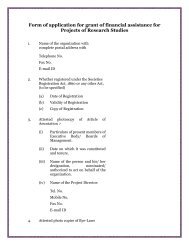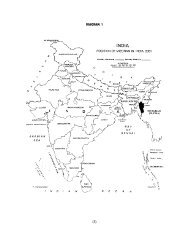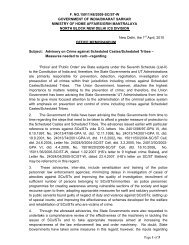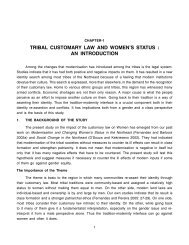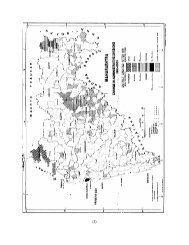Vishaka and others V. State of Rajasthan and others.
Vishaka and others V. State of Rajasthan and others.
Vishaka and others V. State of Rajasthan and others.
- No tags were found...
Create successful ePaper yourself
Turn your PDF publications into a flip-book with our unique Google optimized e-Paper software.
econsider the penalty imposed, or to shorten the litigation, it may itself, in exceptional<strong>and</strong> rare cases, impose appropriate punishment with cogent reasons in supportthere<strong>of</strong>.”(Emphasis supplied)22. Again in Government <strong>of</strong> Tamil Nadu v. A. Rajap<strong>and</strong>ian (1995)1 SCC 216:(1994 AIR SCW 4833) this Court opined ( at p. 4834 <strong>of</strong> AIR ) :“It has been authoritatively settled by string <strong>of</strong> authorities <strong>of</strong> this Court that theAdministrative Tribunal cannot sit as a Court <strong>of</strong> appeal over a decision based on thefindings <strong>of</strong> the inquiring authority in disciplinary proceedings. Where there is somerelevant material which the disciplinary authority has accepted <strong>and</strong> which materialreasonably supports the conclusion reached by the disciplinary authority, it is not thefunction <strong>of</strong> the Administrative Tribunal to review the same <strong>and</strong> reach different findingthan that <strong>of</strong> the disciplinary authority. The Administrative Tribunal, in the case, hasfound no fault with the proceeding held by the inquiring authority. It has quashed thedismissal order by re-appreciating the evidence <strong>and</strong> reaching a finding different thanthat <strong>of</strong> the inquiring authority.”(Emphasis ours)23. In the established facts <strong>and</strong> circumstances <strong>of</strong> this case, we have nohesitation to hold, at the outset, that both the learned single Judge <strong>and</strong> the Division<strong>of</strong> the High Court fell into patent error in interfering with findings <strong>of</strong> fact recorded bythe departmental authorities <strong>and</strong> interfering with the quantum <strong>of</strong> punishment, as if theHigh Court was sitting in appellate jurisdiction. From the judgements <strong>of</strong> the learnedsingle Judge as well as the Division Bench, it is quite obvious that the findings withregard to an “unbecoming act” committed by the respondent, as found by theDepartmental Authorities, were not found fault with even on re-appreciation <strong>of</strong>evidence. The High Court did not find that the occurrence as alleged by thecomplainant had not taken place. Neither the learned single Judge nor the DivisionBench found that findings recorded by the Enquiry Officer or the DepartmentalAppellate Authority were either arbitrary or even perverse. As a matter <strong>of</strong> fact, theHigh Court found no fault whatsoever with the conduct <strong>of</strong> Enquiry. The direction <strong>of</strong>the learned single Judge to the effect that the respondent was not entitled to backwages <strong>and</strong> was to be posted outside the city for at least two years, which was upheld21


